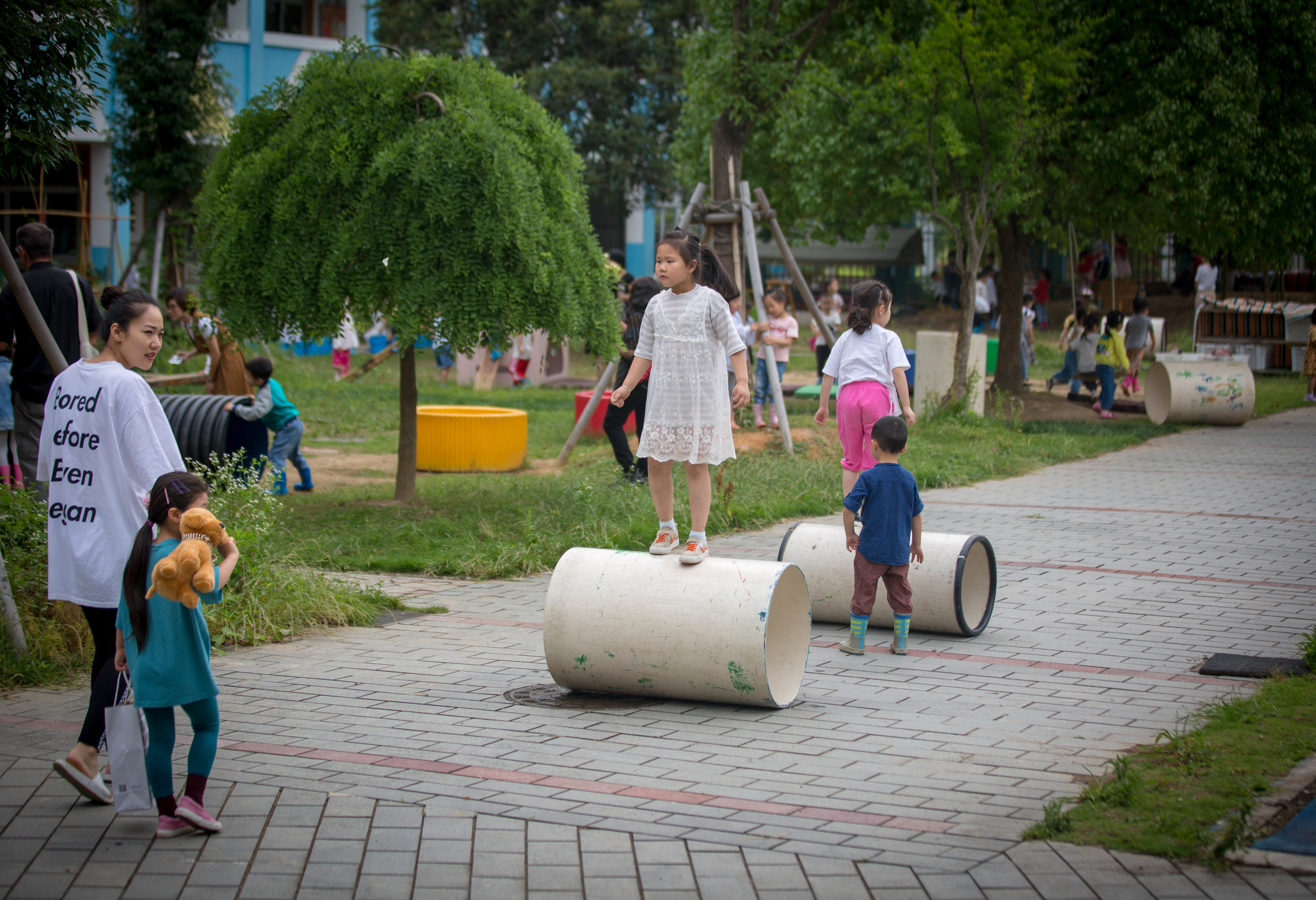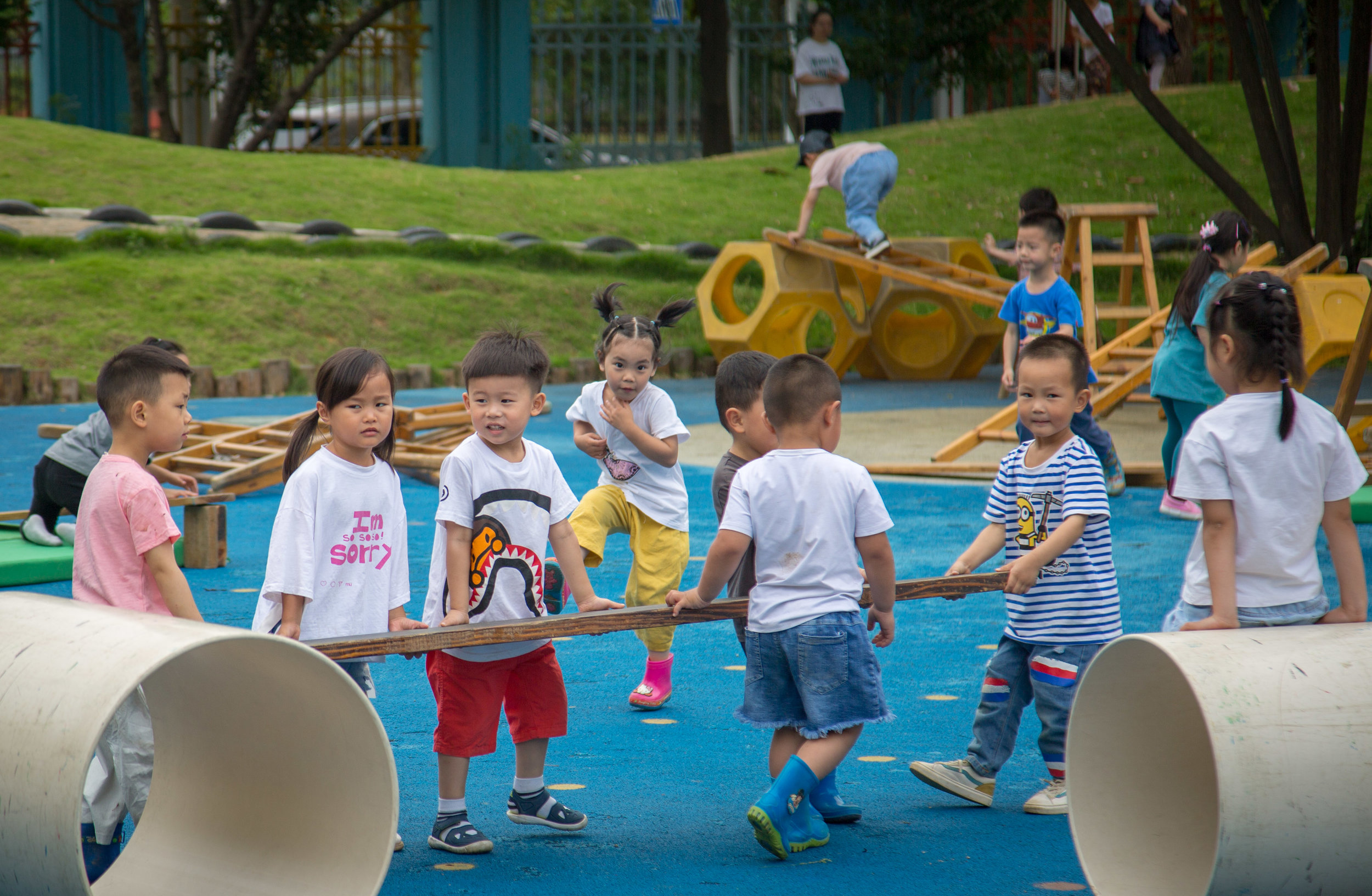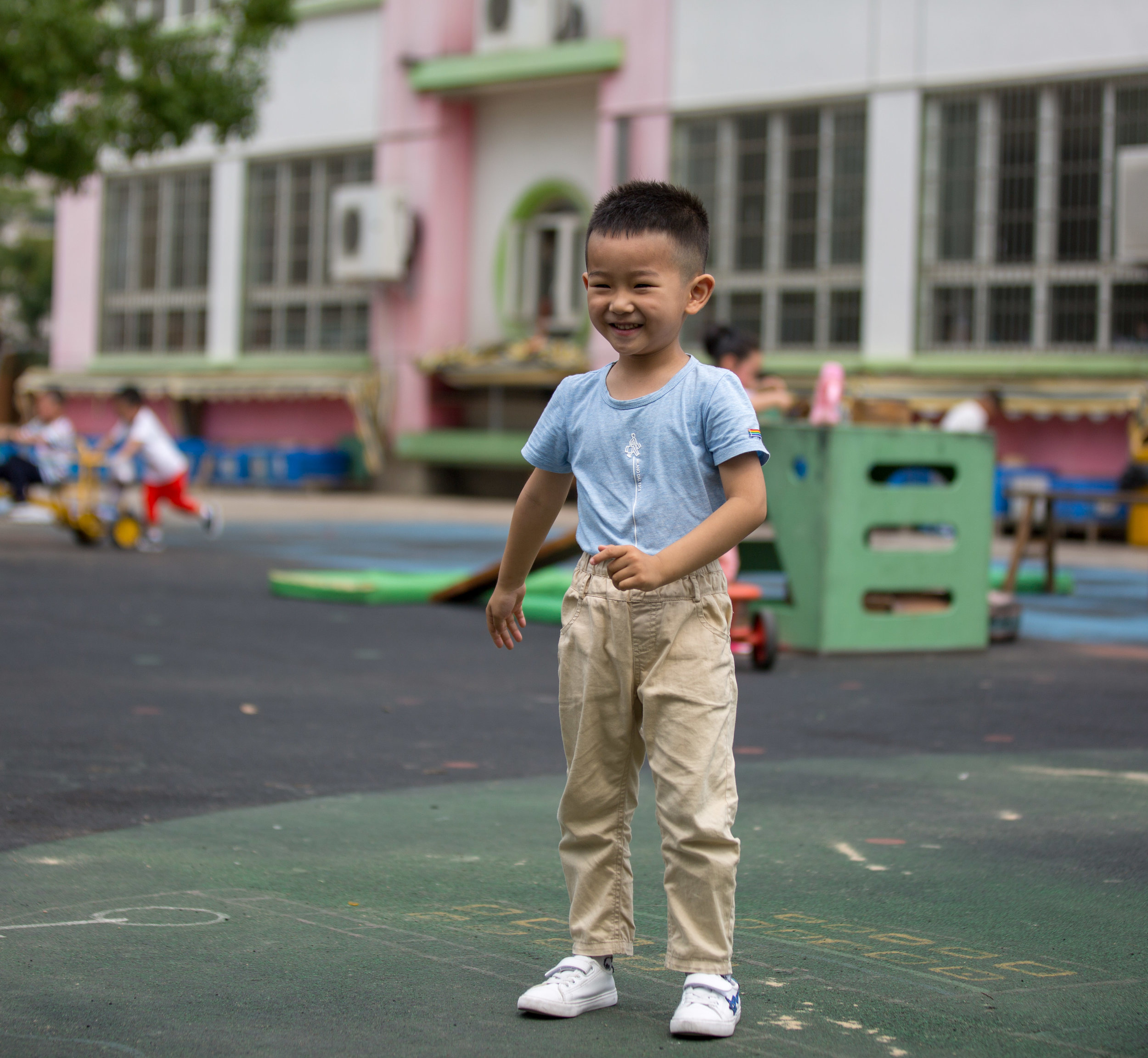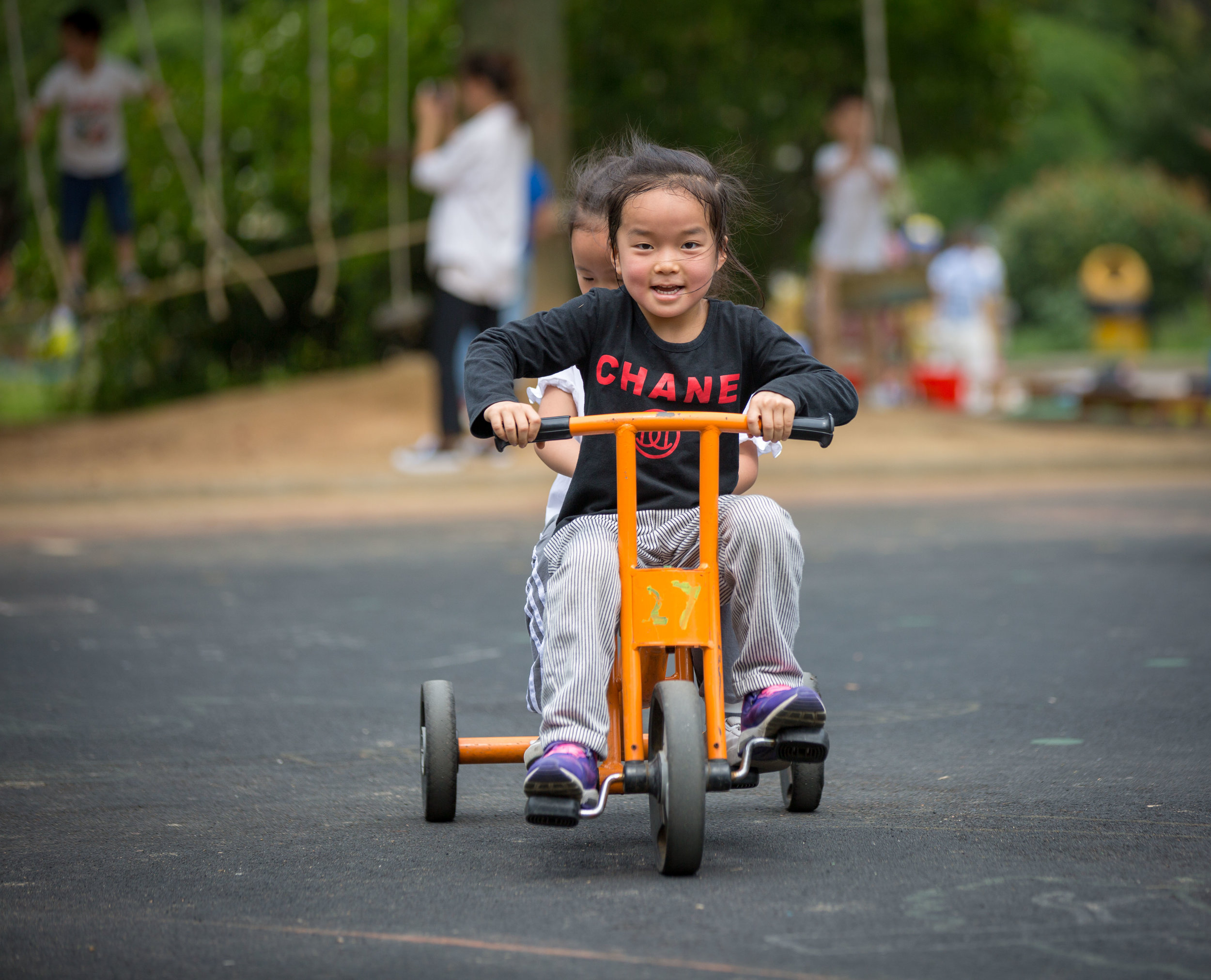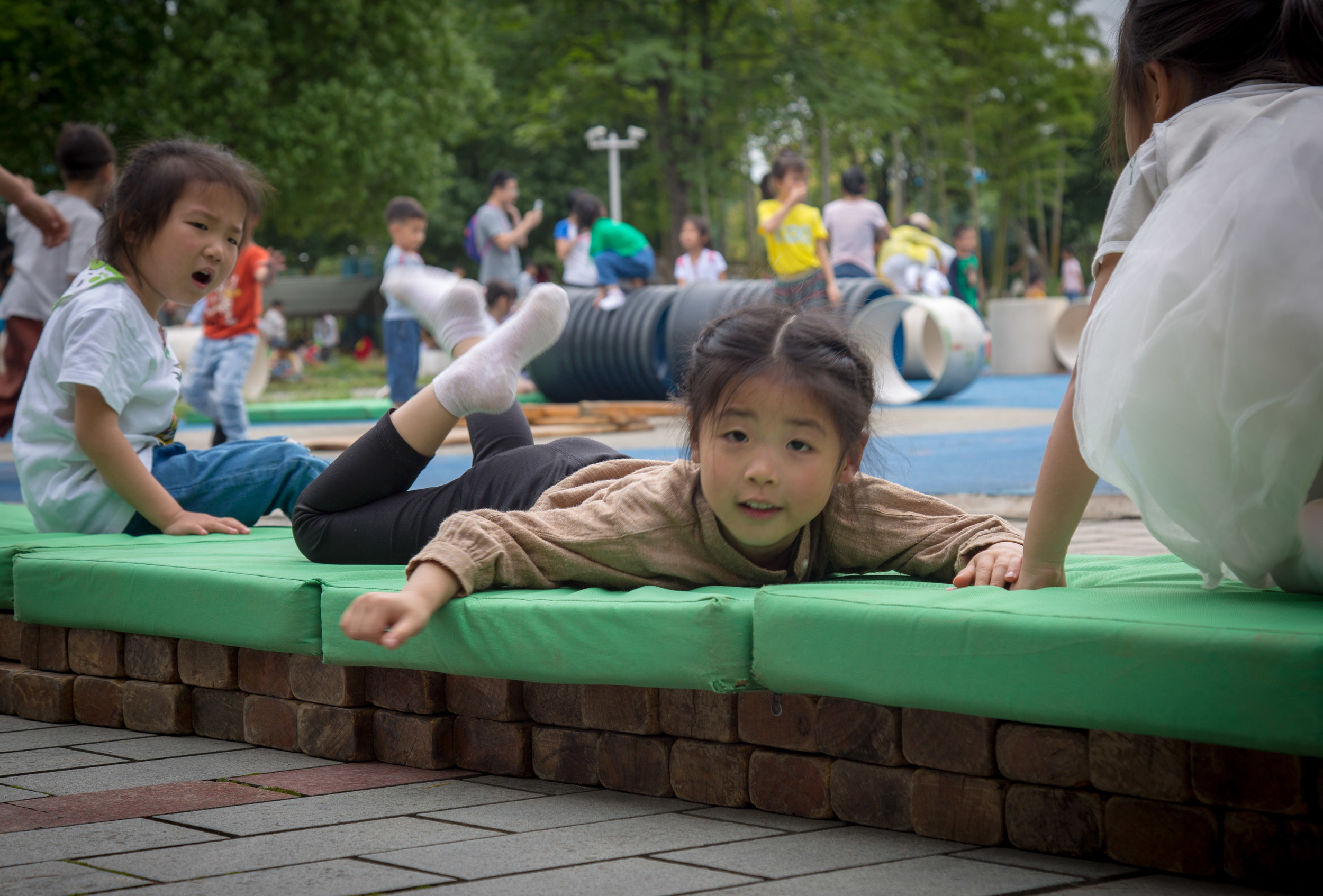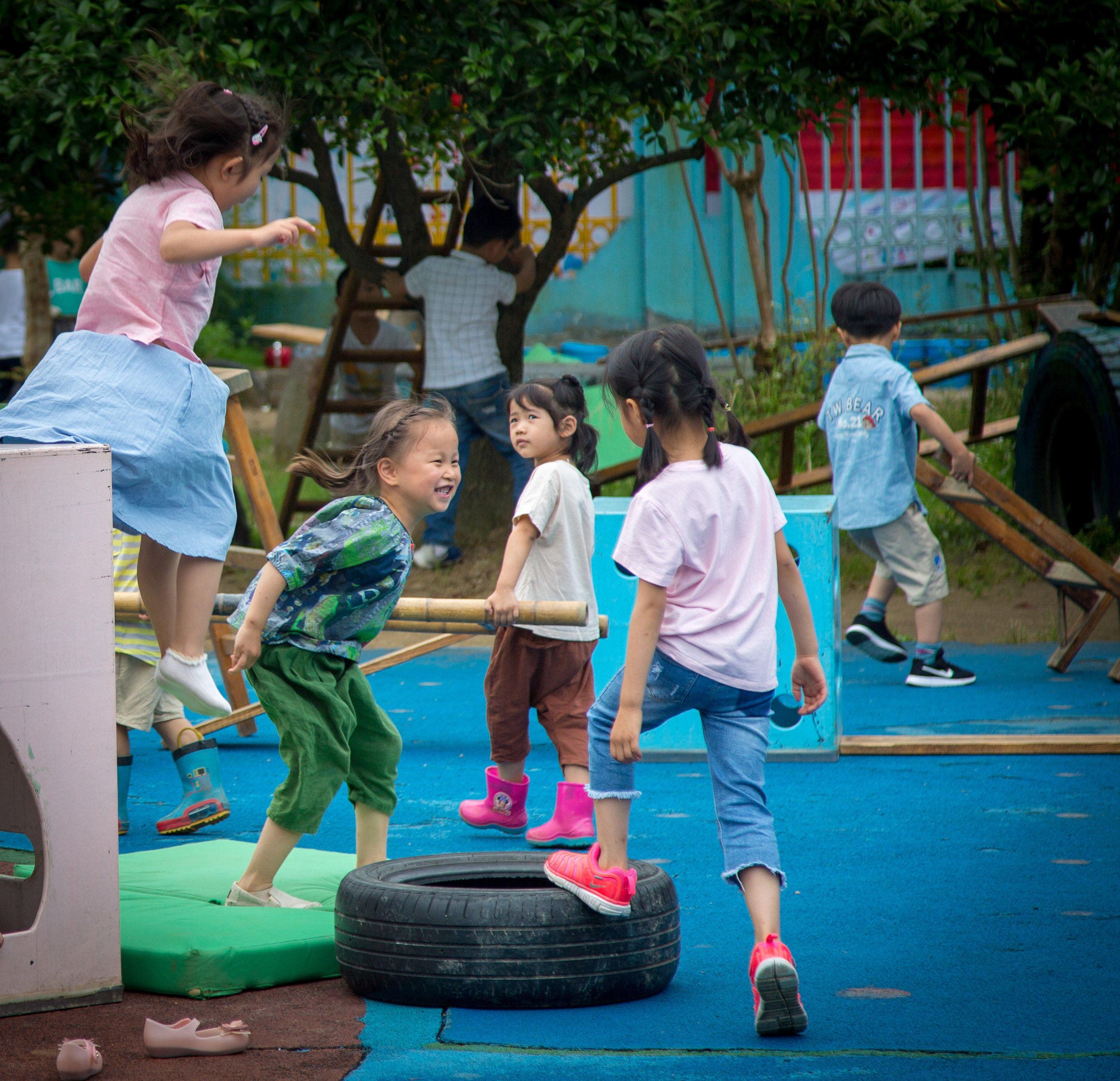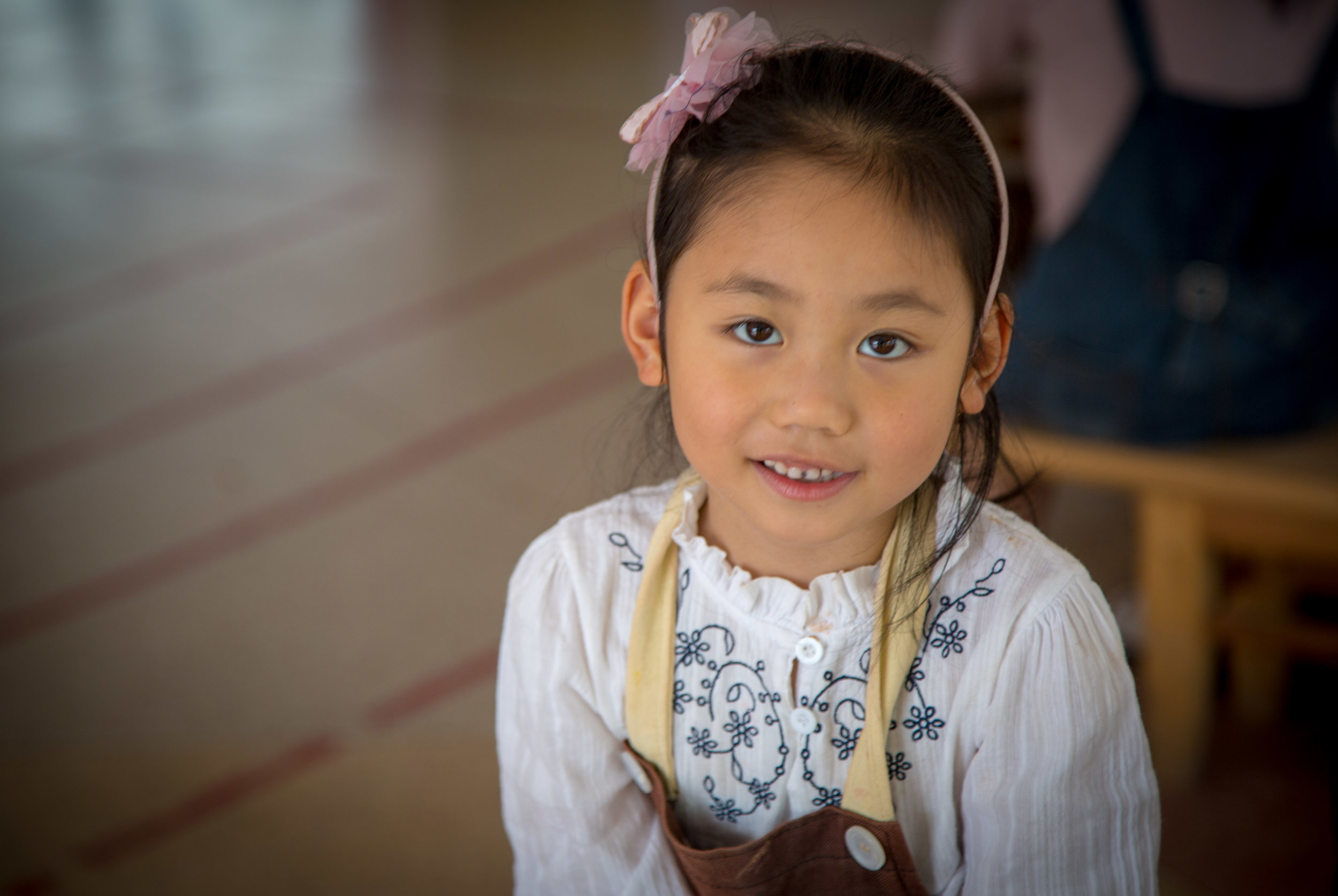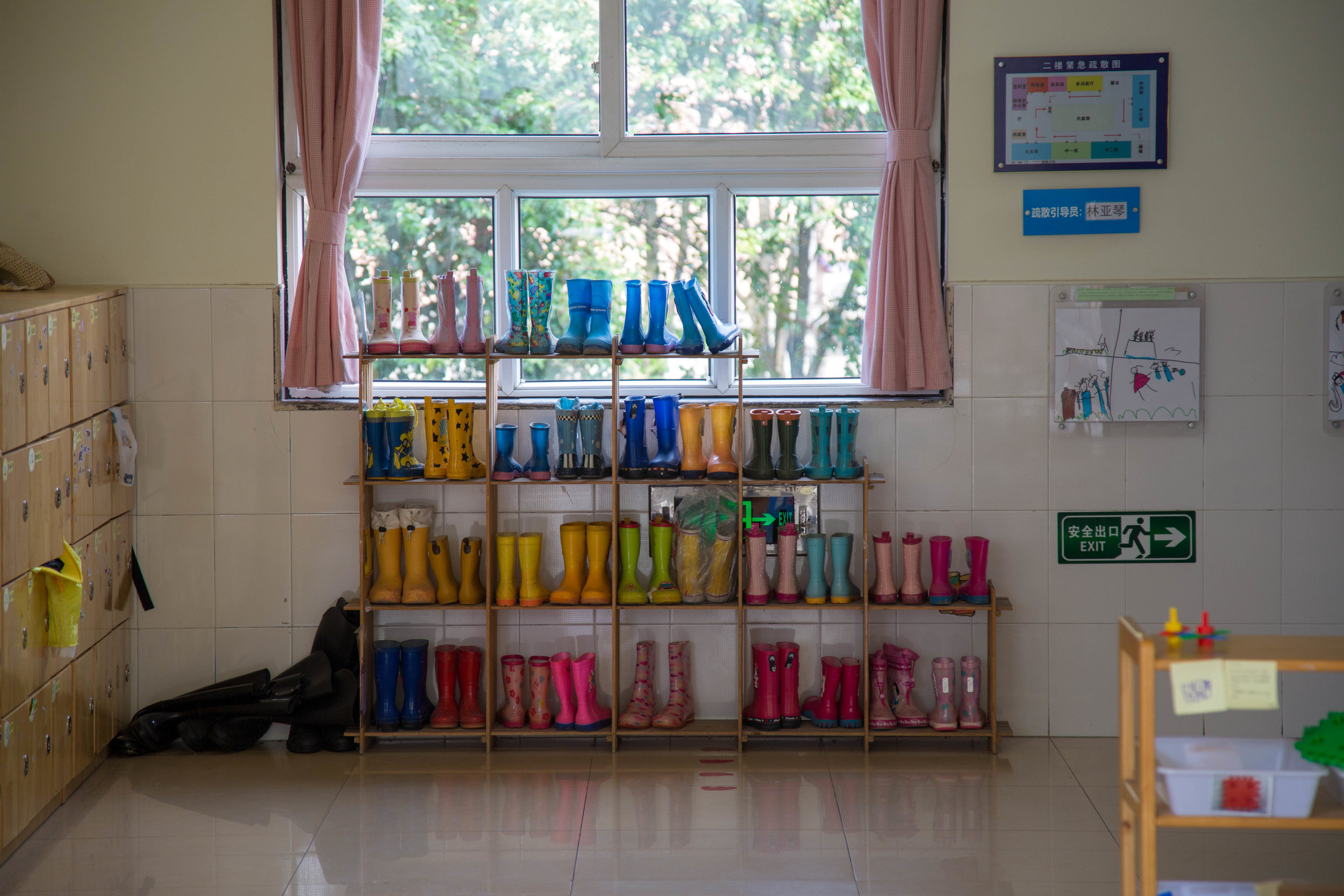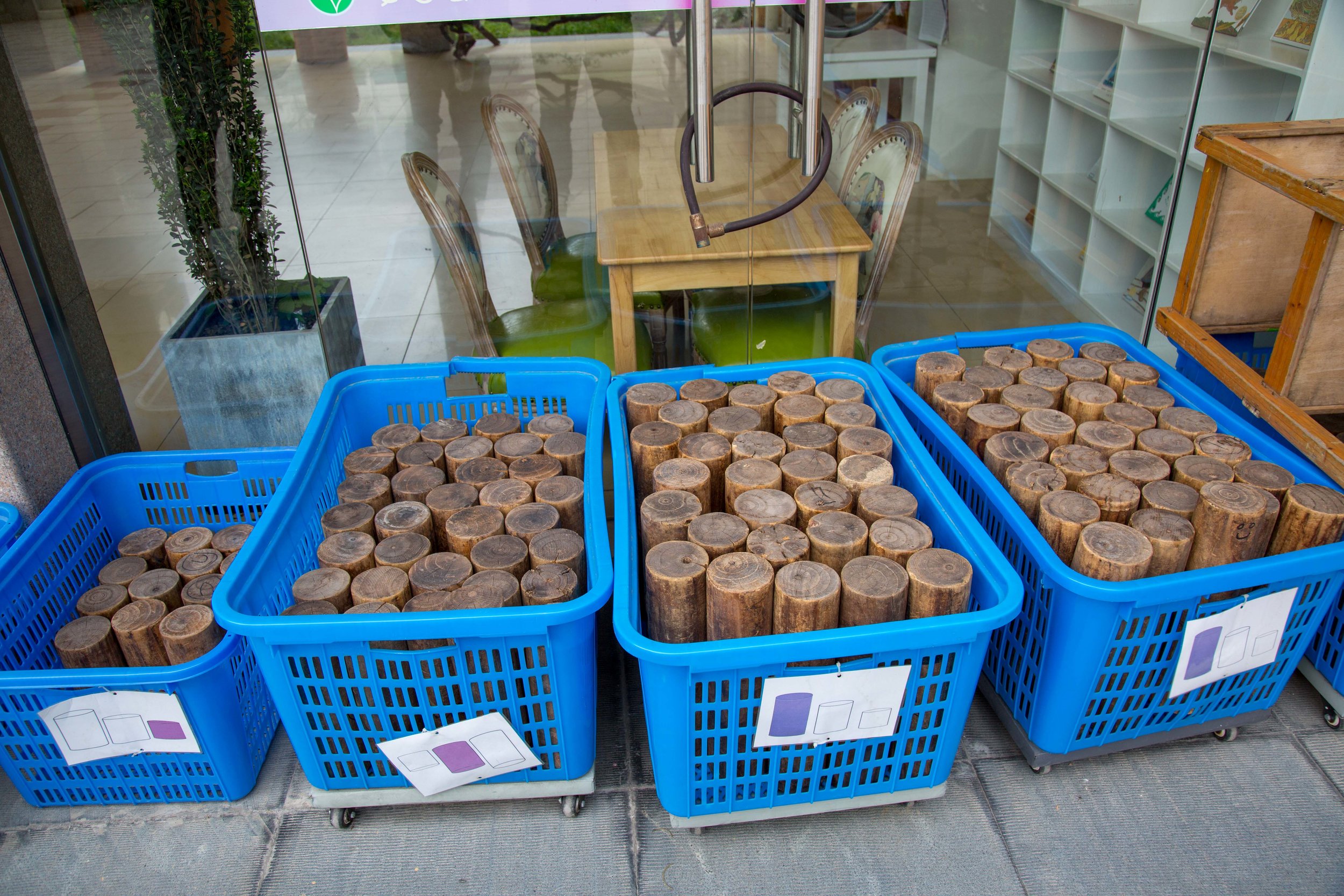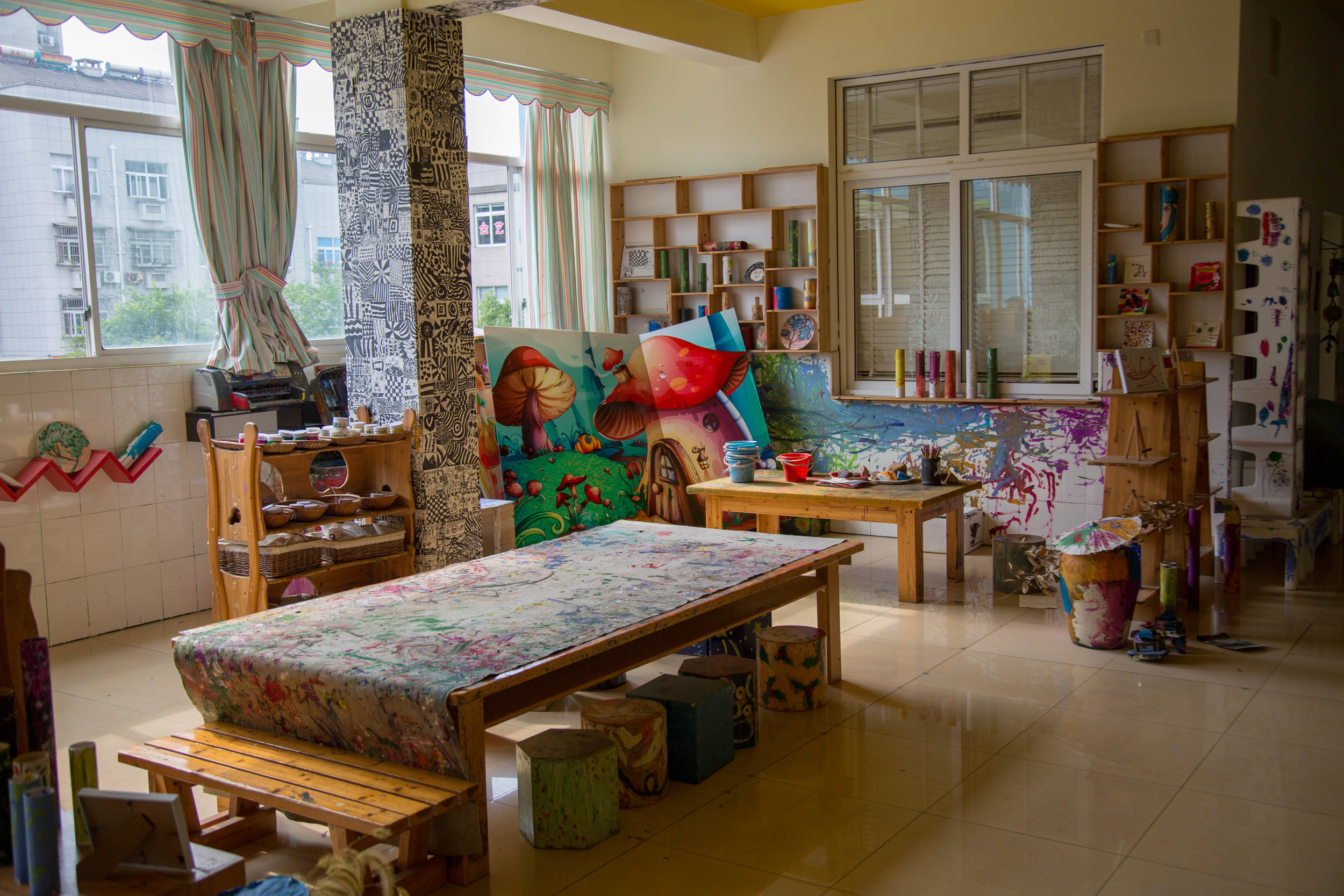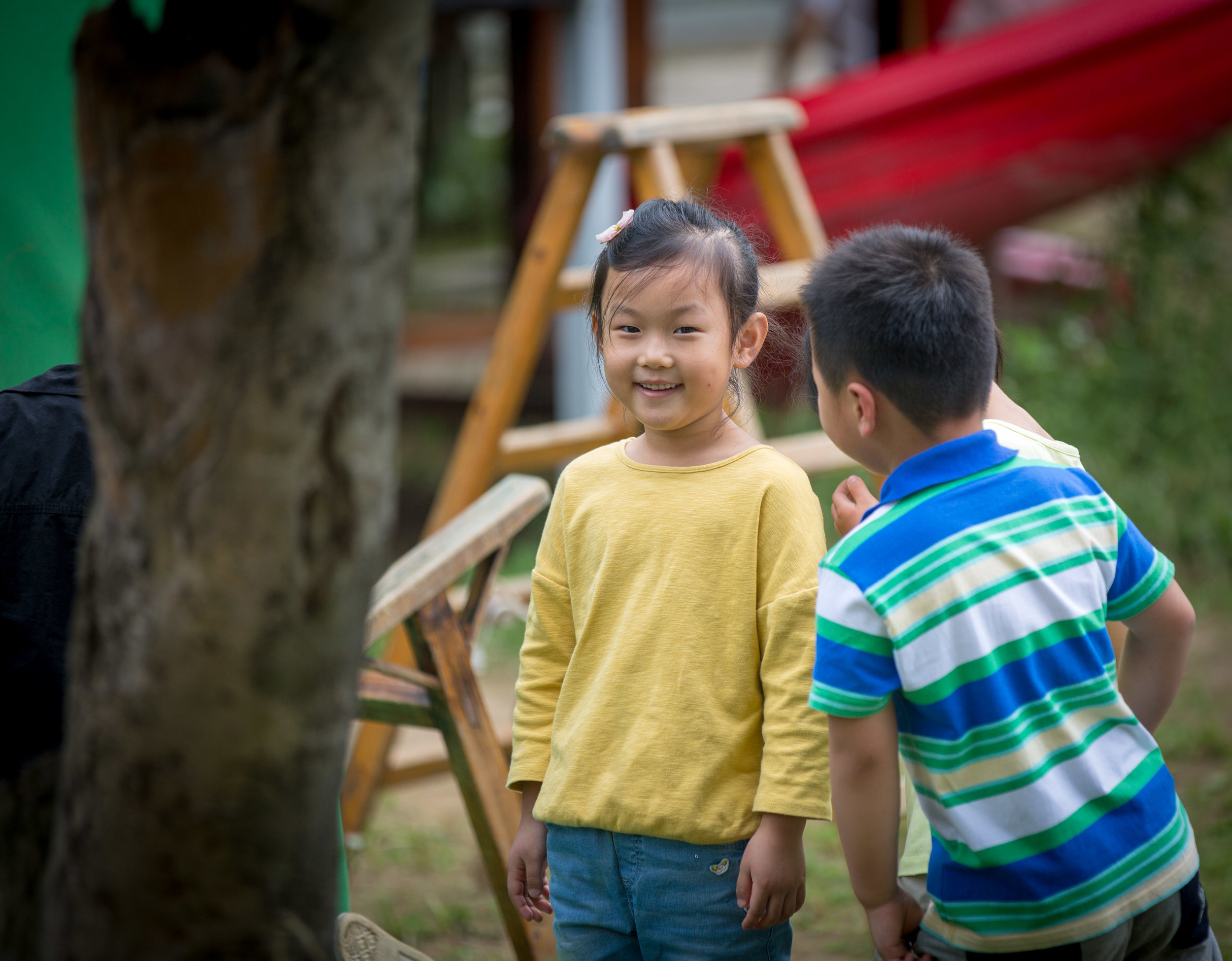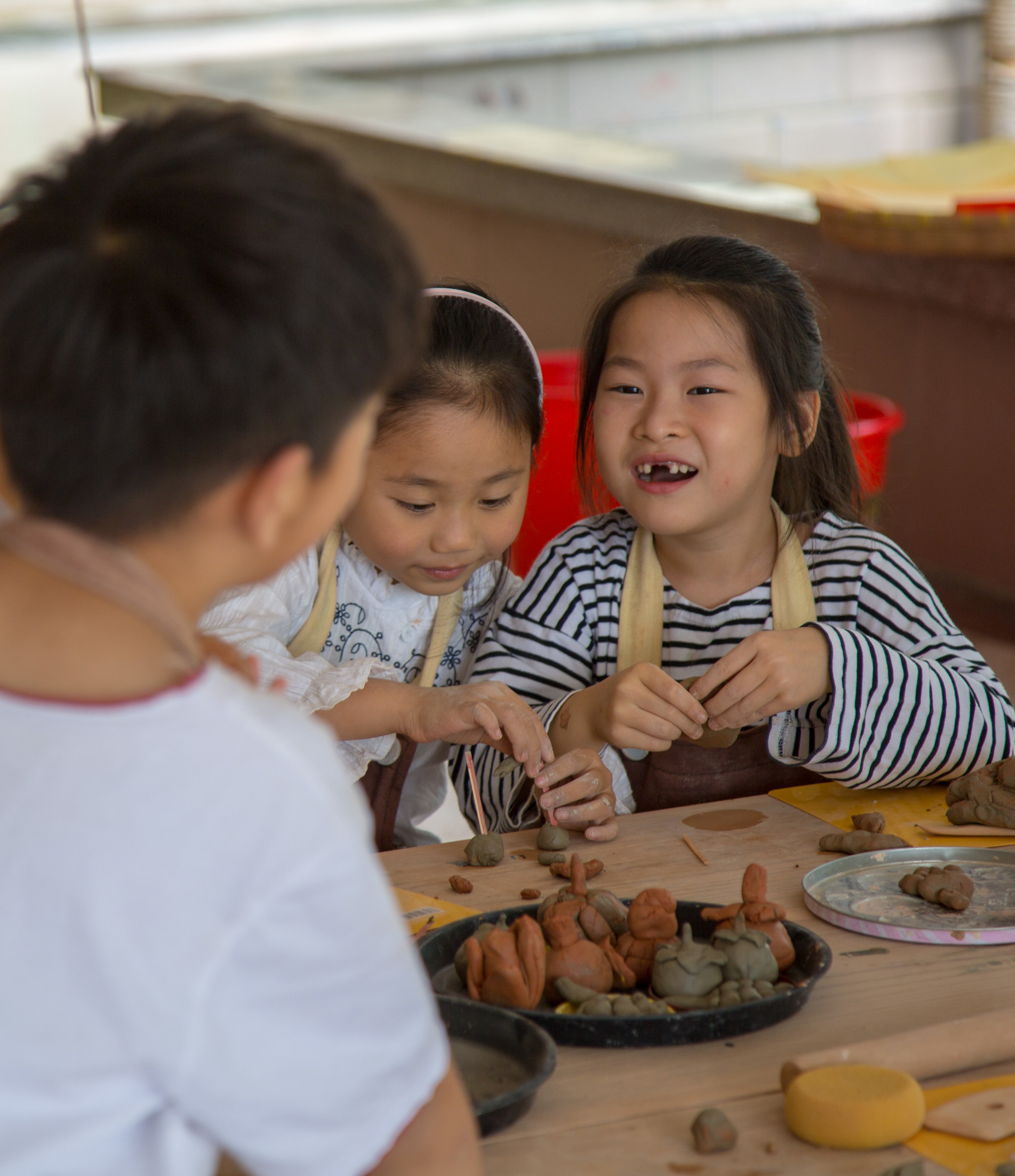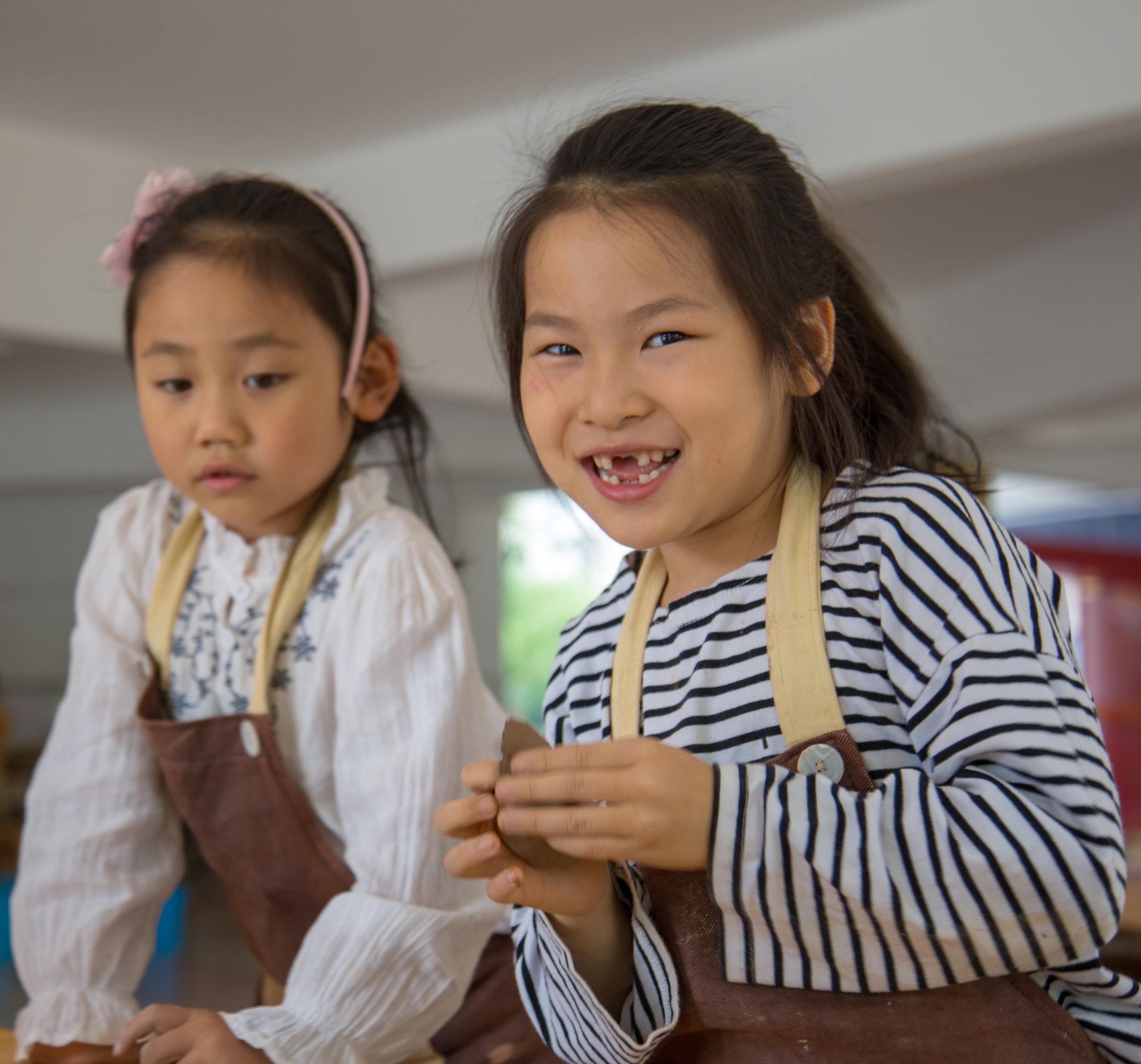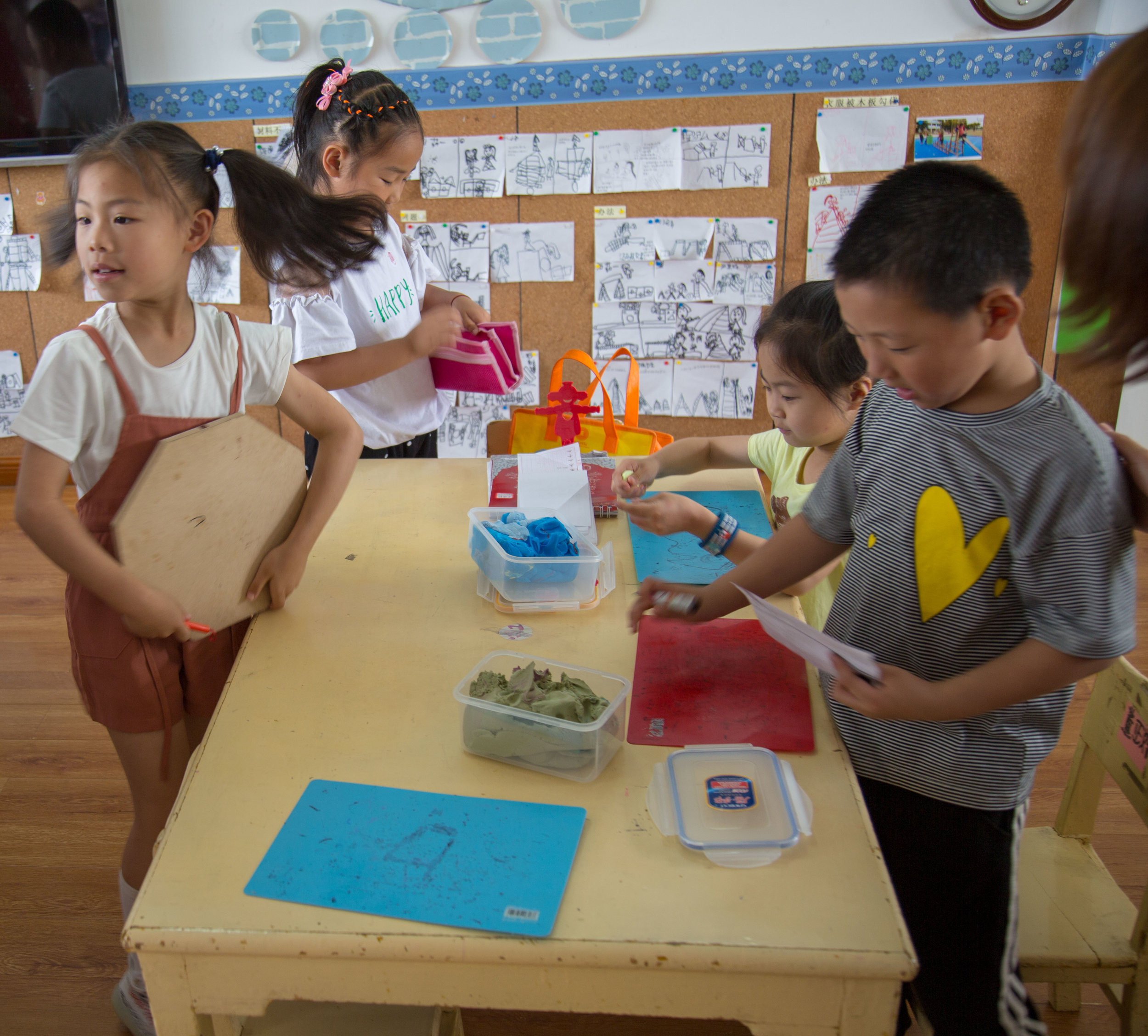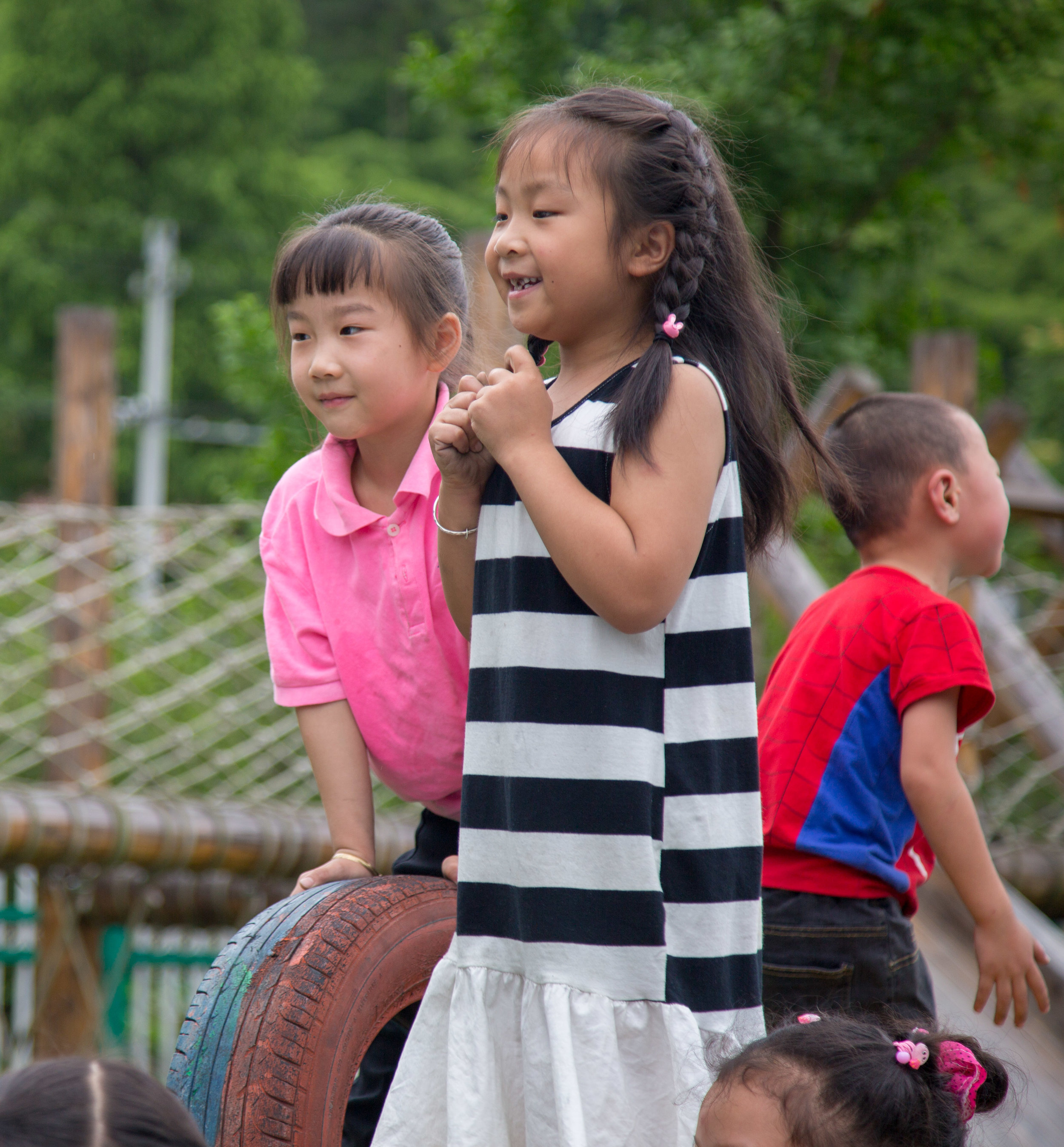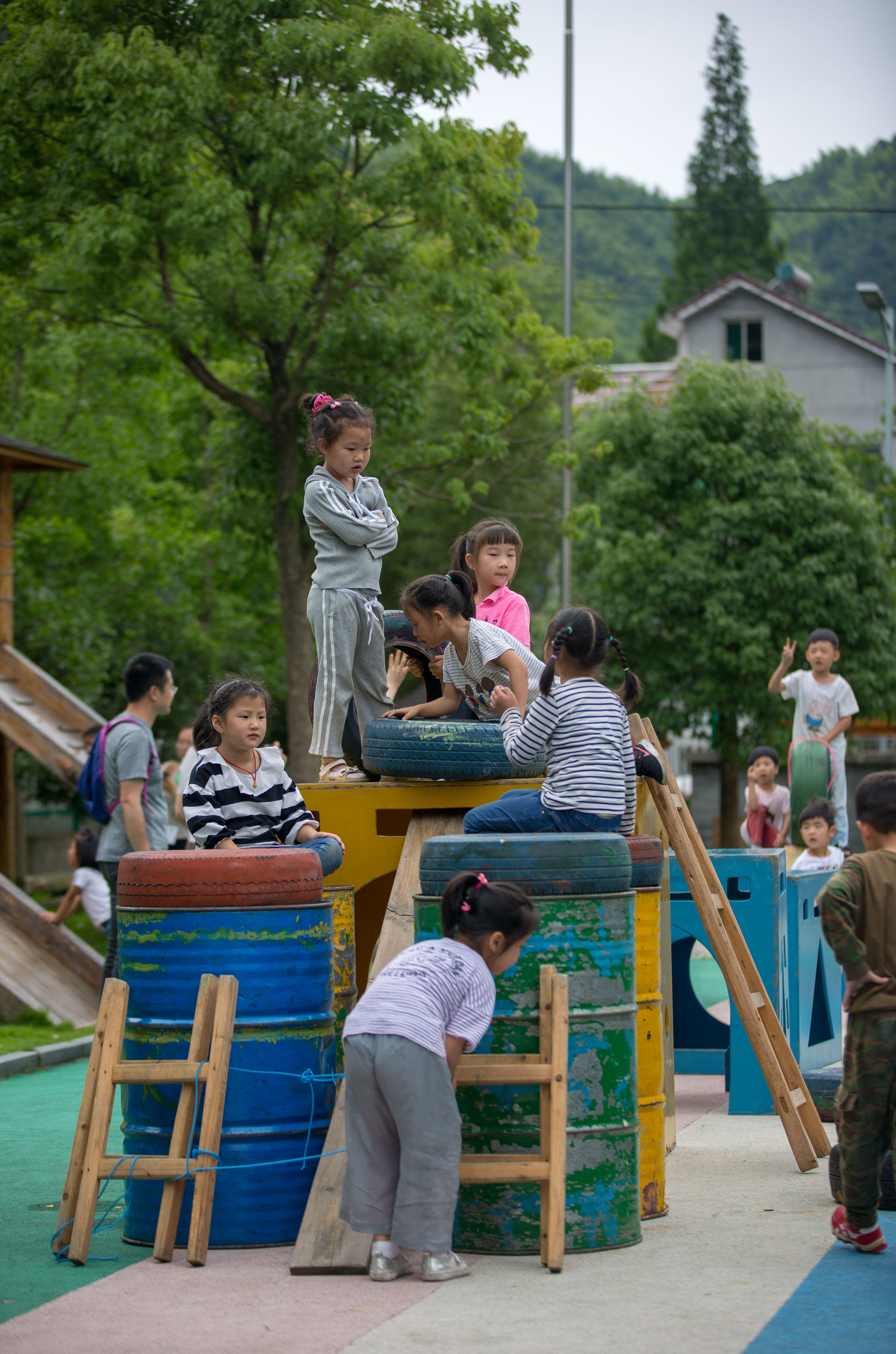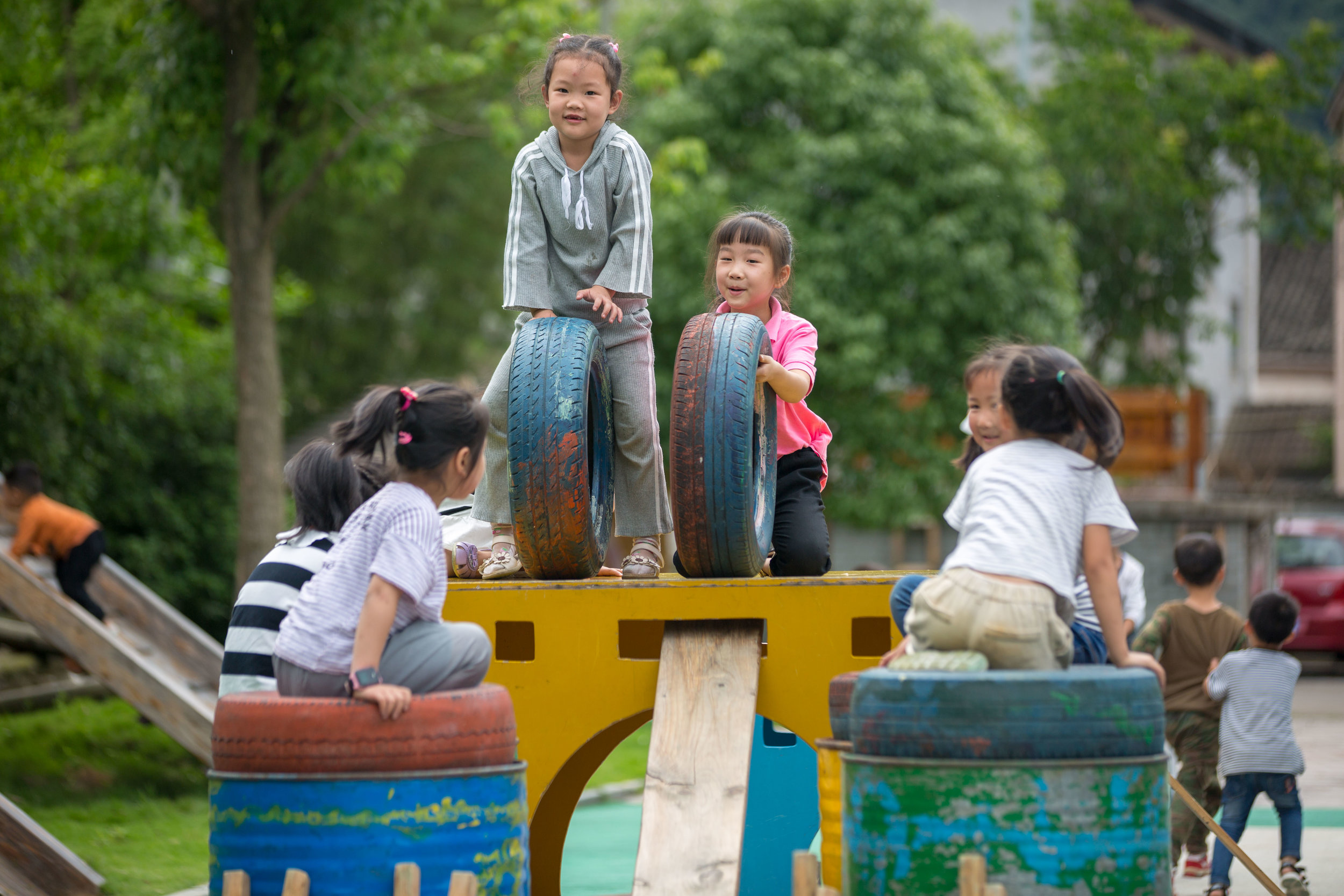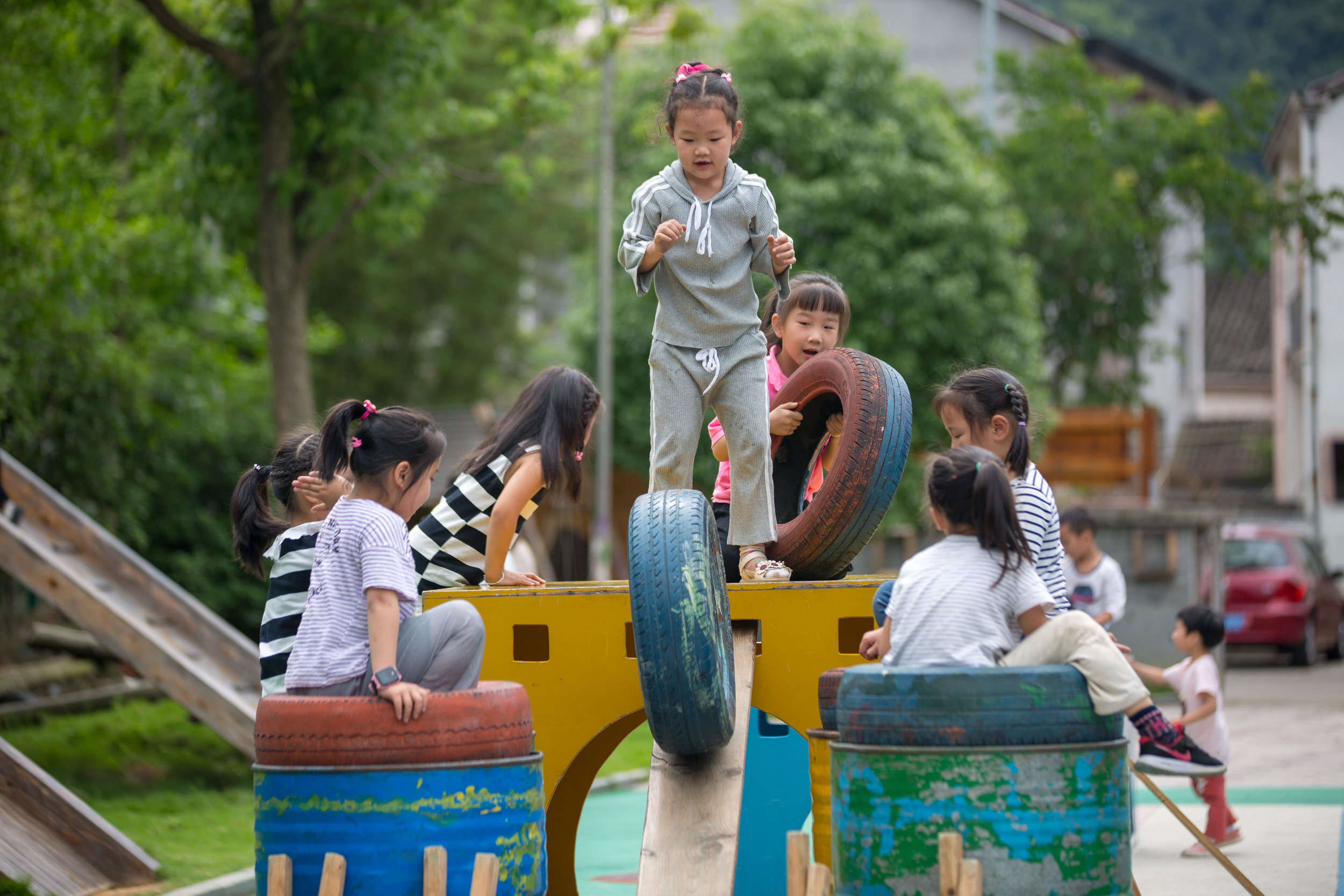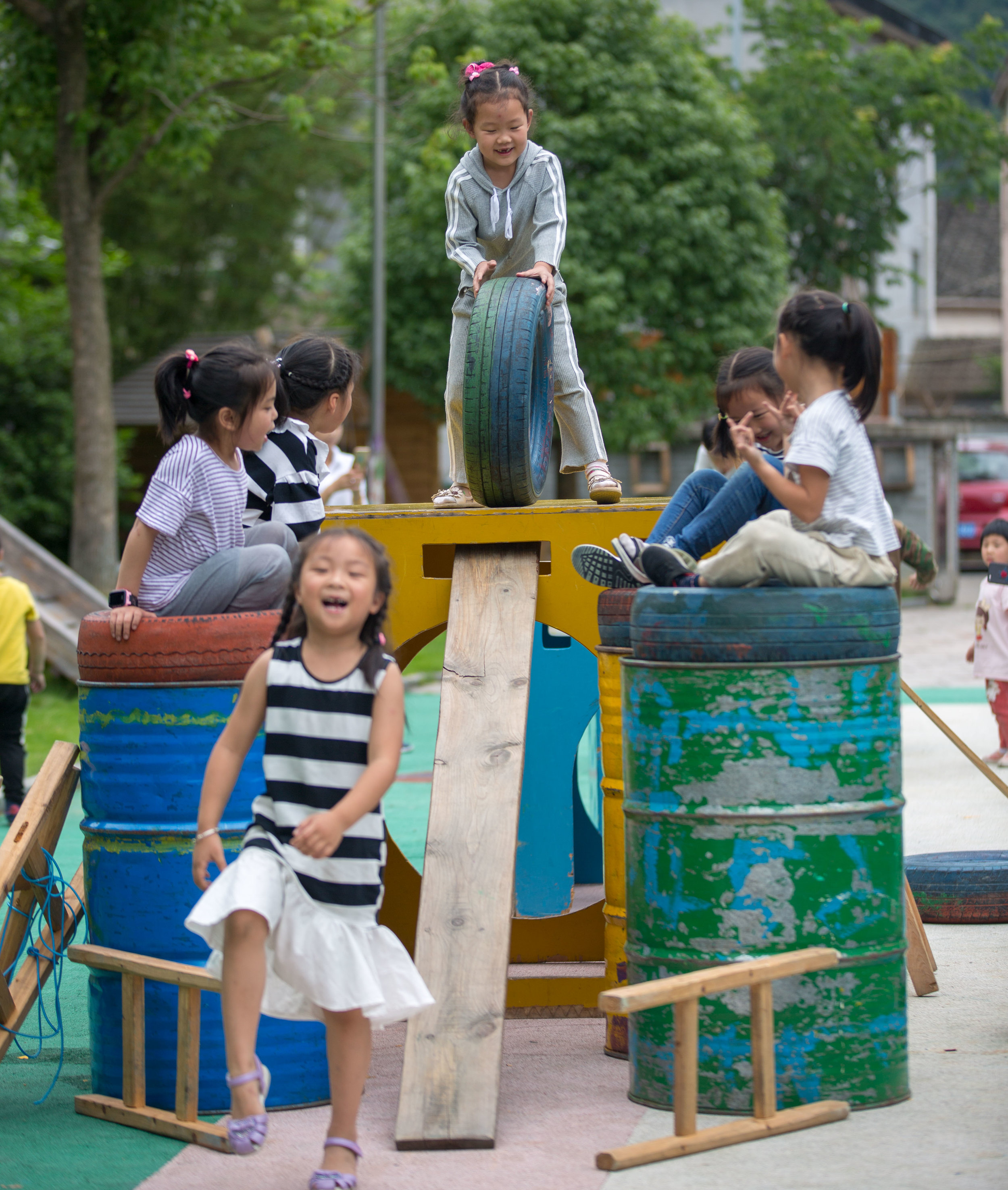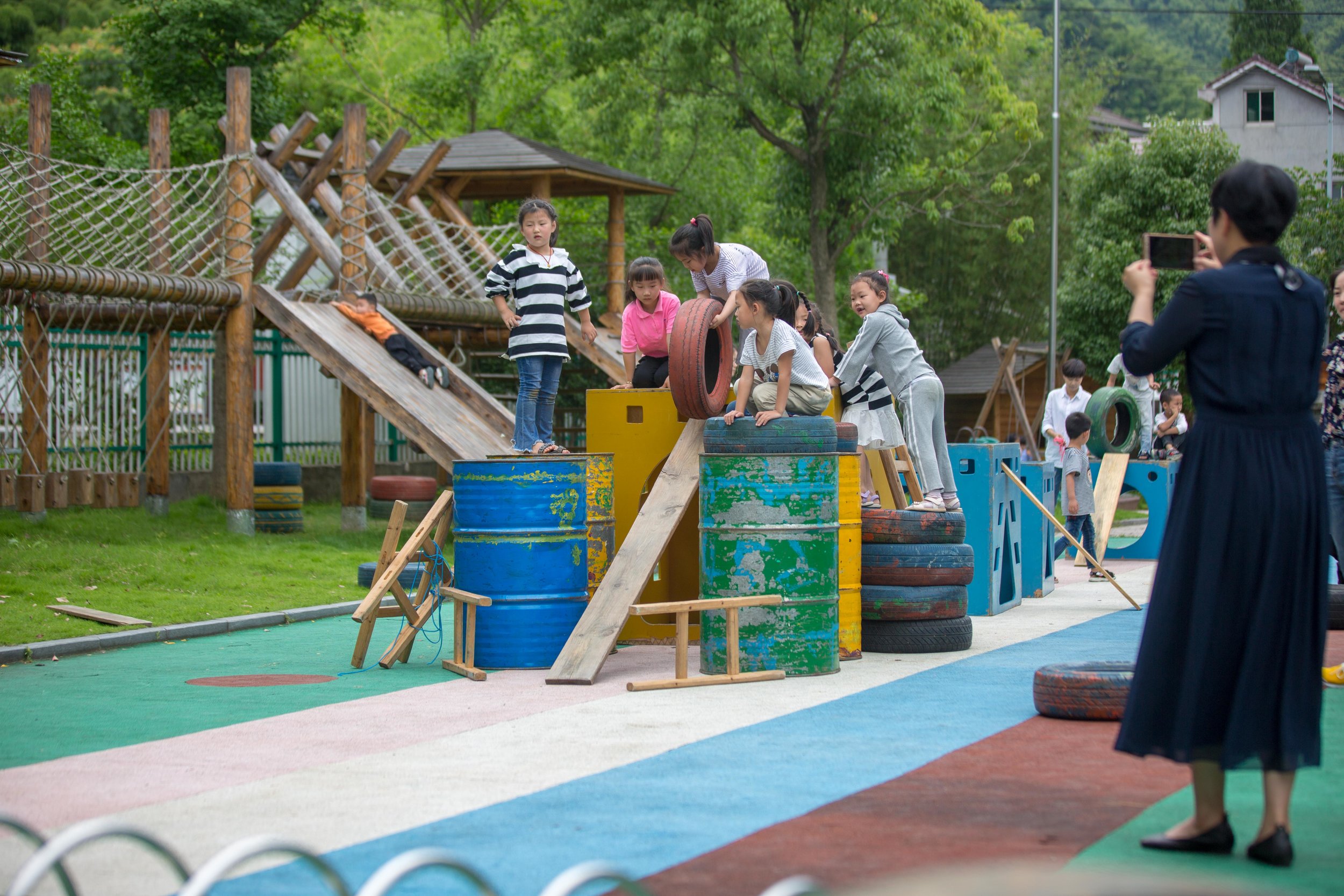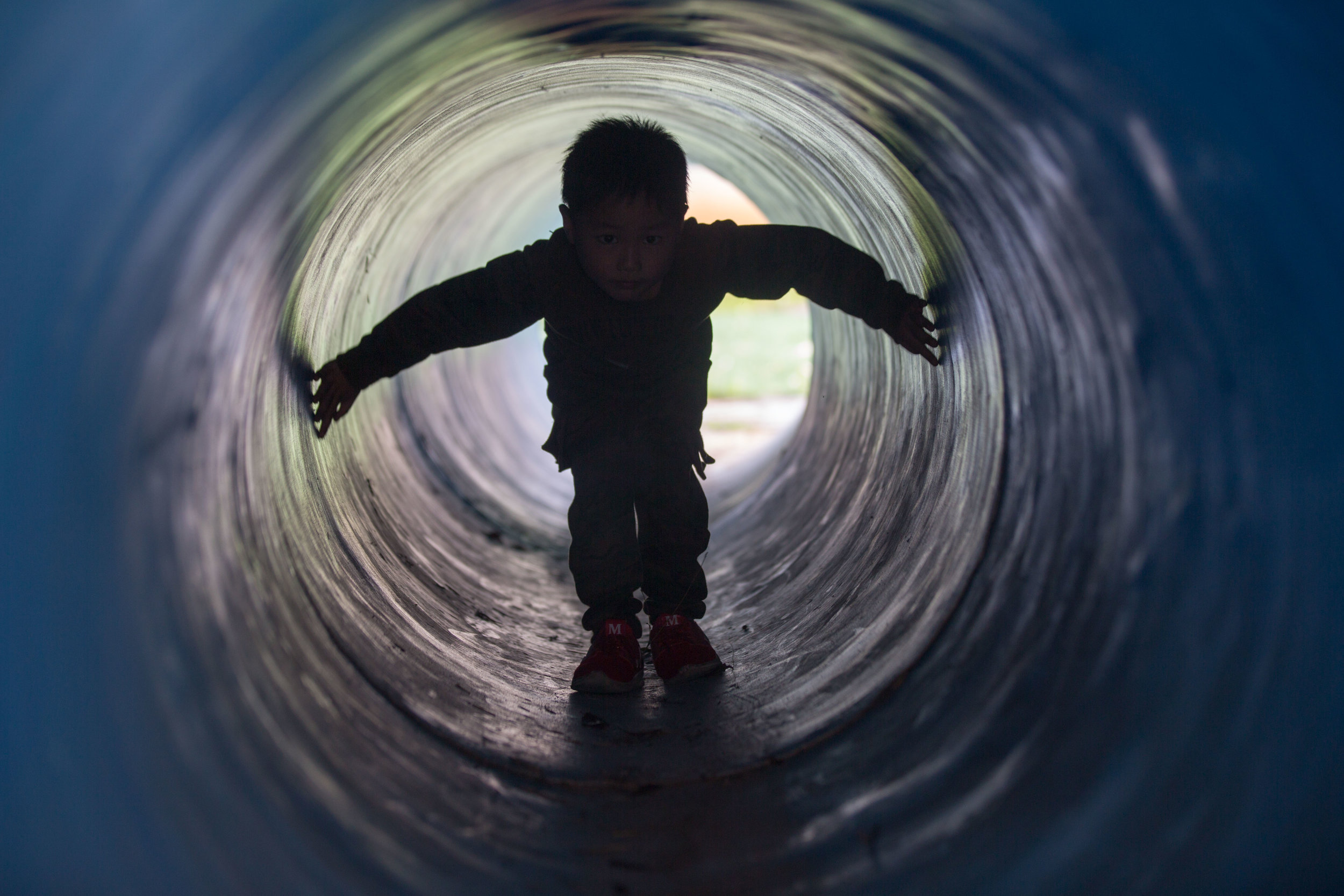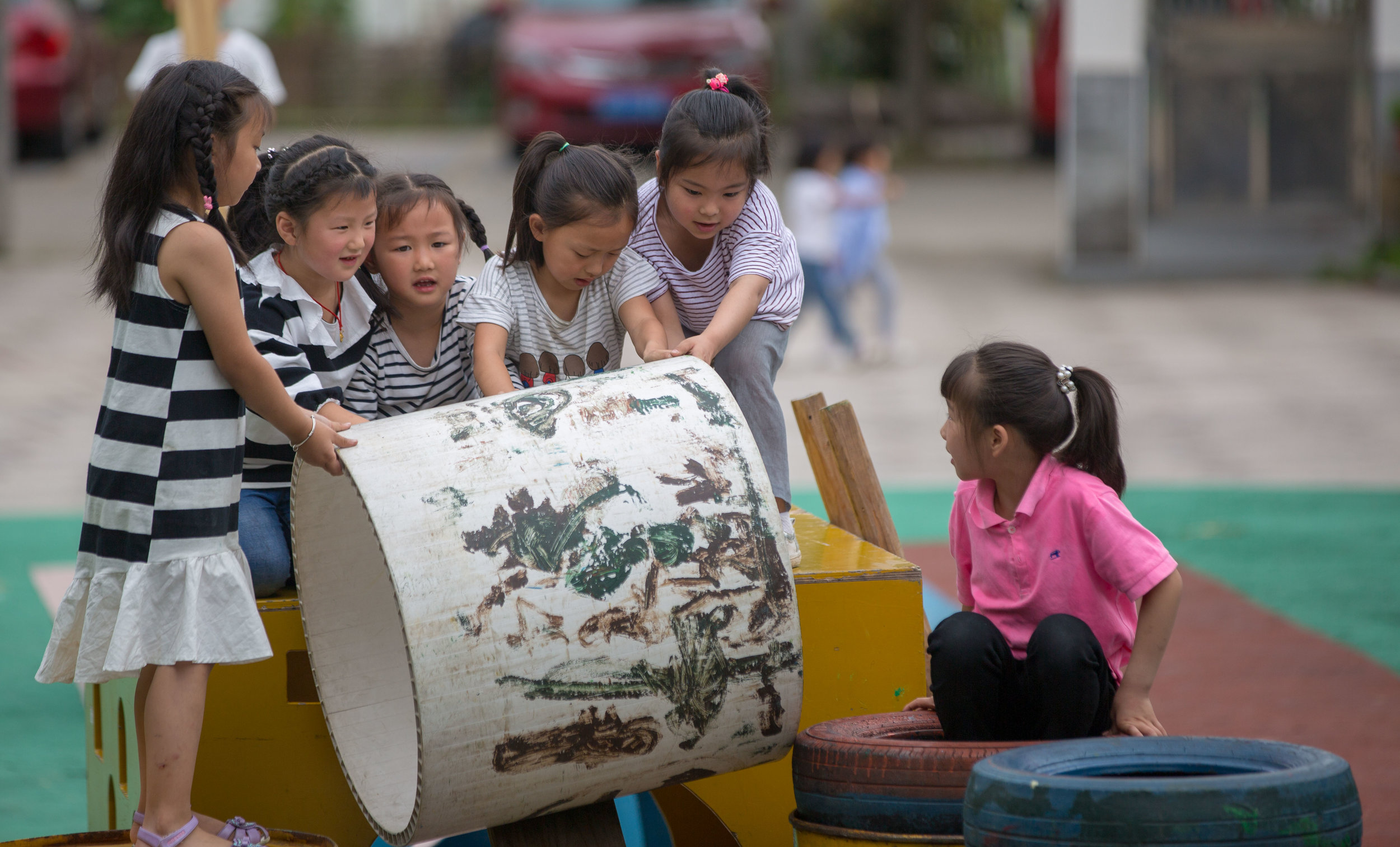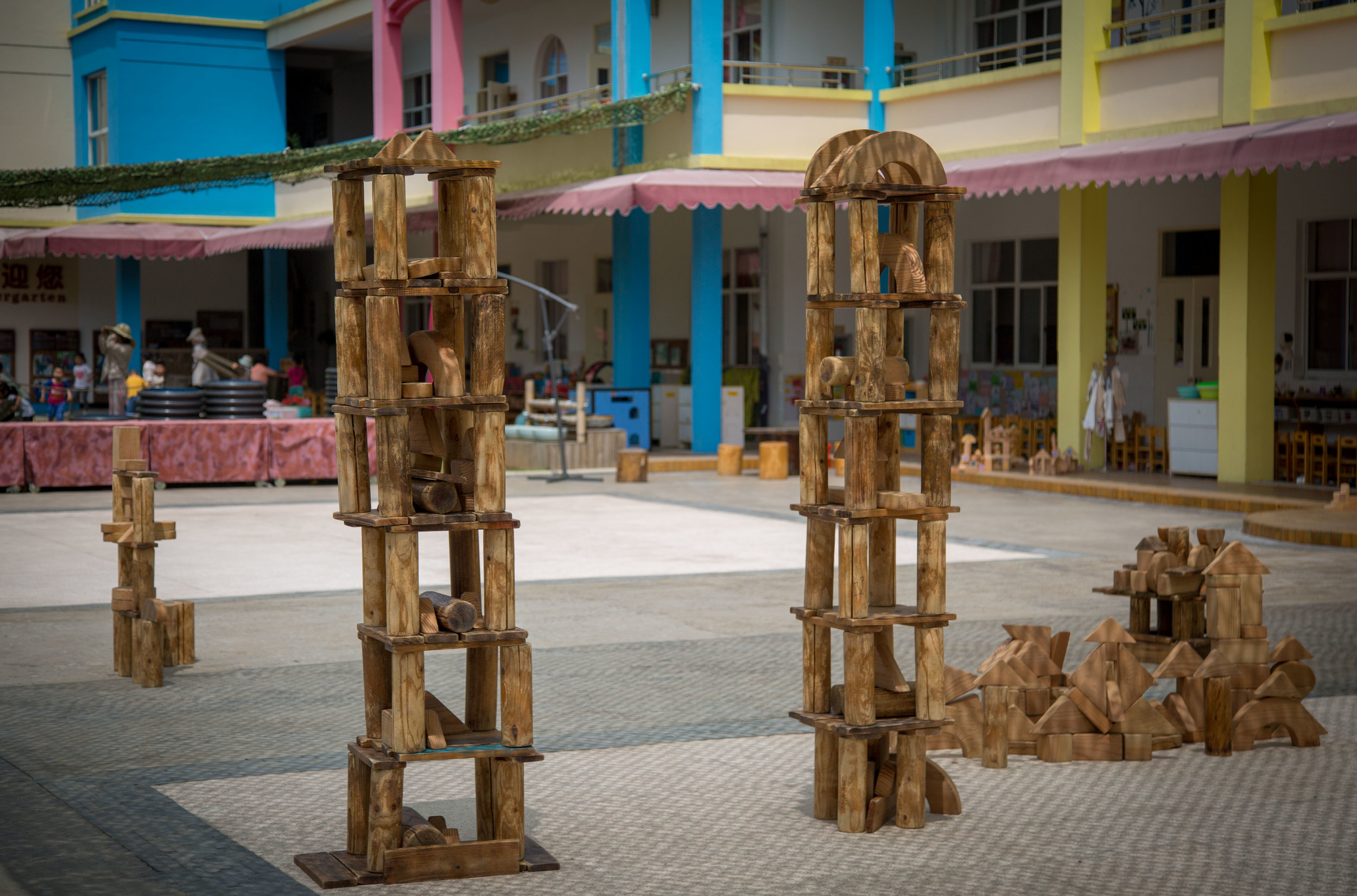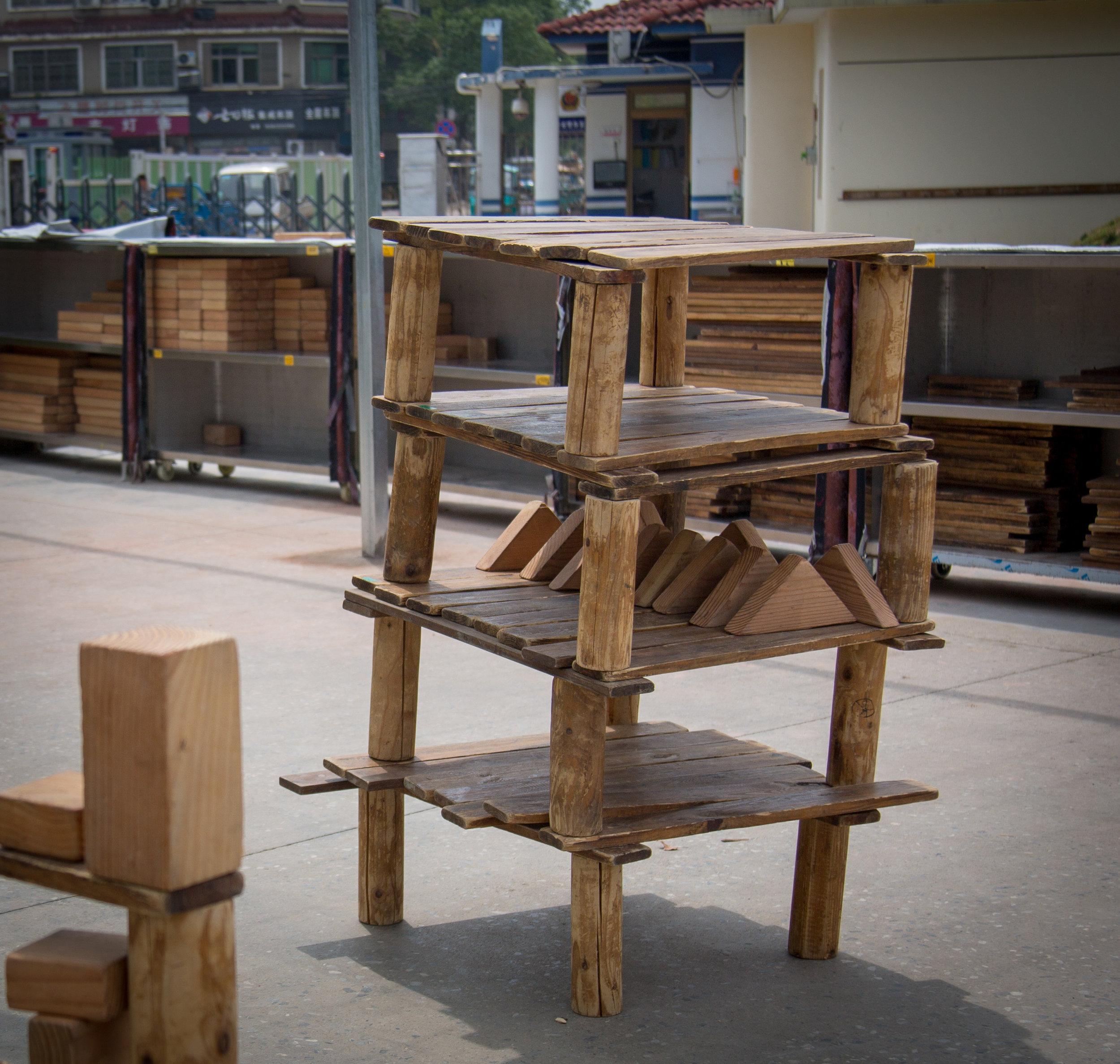I'm just back from a week in Anji County, China, where 130 kindergartens are organized around one simple, radical principle: trust children.
A kindergartener at an Anji Play school jumps from a structure the children built during play
At these Anji Play schools, children are offered expansive, minimally structured environments for self-determined play. On a given day, you see them walking on barrels, building (and sometimes jumping from) large wooden structures, and painting on walls. You see and immediately feel the true joy in their play. Their play looks risky at times, and it is. The element risk makes what the teachers at Anji Play do - or don't do - even more remarkable. Teachers observe but they don’t intervene. They trust each child to determine his or her own capacity for risk and engagement. They stand nearby, observing attentively, most of the time using their phones to record videos of children’s play.
Once play is finished, the teachers use these videos as the basis for “play sharing” in the classrooms. Children talk about what they experienced during play, problems that arose, how they tried to solve them, what they learned and want to explore further during the next day’s play. Teachers are trained to suspend their assumptions, to ask open questions and not project their own interpretations onto the children’s experiences. What happens, frequently, is that the children make sense of their play in ways that are far more complex, surprising, and sophisticated than the adults would have assumed.
Play sharing at an Anji Play school
In this way, the curriculum at an Anji Play school is not pre-determined; rather, it emerges from the children’s play and the subsequent reflections sessions, day by day, week by week, over the course of a year.
Below are a few more photos from this remarkable approach to education, which has been going on now for 17 years. For a brief history and overview of the program, have a look at Anji Play CEO Jesse Coffino's excellent introduction.
In the months ahead, I’ll be writing and working on videos in order to share in more detail what’s happening here, and why anyone interested in innovative approaches to learning and leadership — regardless of the context — would do well to learn from what’s happening in Anji.



